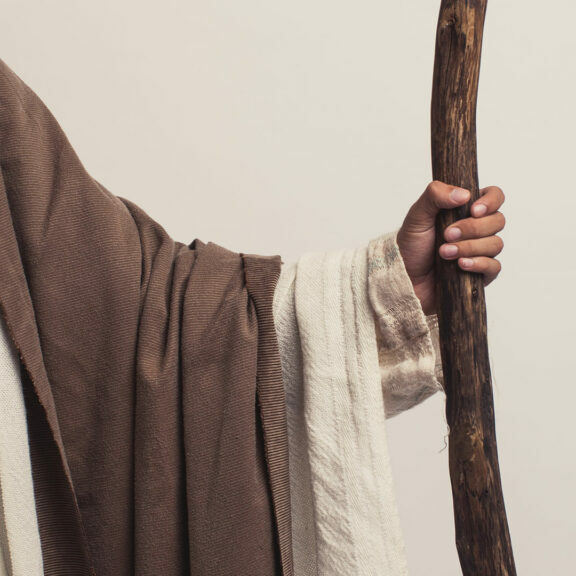March 27, 2022
Pastor Gunnar Ledermann
Luke 15:1-2, 11-32
Luke 15:1-2, 11-32
1 Now the tax collectors and sinners were all gathering around to hear Jesus. 2 But the Pharisees and the teachers of the law muttered, “This man welcomes sinners and eats with them.”
11 Jesus continued: “There was a man who had two sons. 12 The younger one said to his father, ‘Father, give me my share of the estate.’ So he divided his property between them.
13 “Not long after that, the younger son got together all he had, set off for a distant country and there squandered his wealth in wild living. 14 After he had spent everything, there was a severe famine in that whole country, and he began to be in need. 15 So he went and hired himself out to a citizen of that country, who sent him to his fields to feed pigs. 16 He longed to fill his stomach with the pods that the pigs were eating, but no one gave him anything.
17 “When he came to his senses, he said, ‘How many of my father’s hired servants have food to spare, and here I am starving to death! 18 I will set out and go back to my father and say to him: Father, I have sinned against heaven and against you. 19 I am no longer worthy to be called your son; make me like one of your hired servants.’ 20 So he got up and went to his father.
“But while he was still a long way off, his father saw him and was filled with compassion for him; he ran to his son, threw his arms around him and kissed him.
21 “The son said to him, ‘Father, I have sinned against heaven and against you. I am no longer worthy to be called your son.’
22 “But the father said to his servants, ‘Quick! Bring the best robe and put it on him. Put a ring on his finger and sandals on his feet. 23 Bring the fattened calf and kill it. Let’s have a feast and celebrate. 24 For this son of mine was dead and is alive again; he was lost and is found.’ So they began to celebrate.
25 “Meanwhile, the older son was in the field. When he came near the house, he heard music and dancing. 26 So he called one of the servants and asked him what was going on. 27 ‘Your brother has come,’ he replied, ‘and your father has killed the fattened calf because he has him back safe and sound.’
28 “The older brother became angry and refused to go in. So his father went out and pleaded with him. 29 But he answered his father, ‘Look! All these years I’ve been slaving for you and never disobeyed your orders. Yet you never gave me even a young goat so I could celebrate with my friends. 30 But when this son of yours who has squandered your property with prostitutes comes home, you kill the fattened calf for him!’
31 “‘My son,’ the father said, ‘you are always with me, and everything I have is yours. 32 But we had to celebrate and be glad, because this brother of yours was dead and is alive again; he was lost and is found.’”
When your younger sibling asks for help on their book report on the book “To Kill a Mockingbird,” and you tell your sibling to read the book like everyone one else, but you watched the movie to do your report. When you tell your kids, “Don’t bring your phone to the dinner table,” but you answer work emails from the table the next evening. When you tell your family to conserve gasoline by combining trips or giving up something, but you take the car by yourself to go across town to get a milkshake from your favorite fast-food chain after they are in bed. When you respond, “I will pray for you,” to a grief-stricken coworker, but forgetting to ever stop and ask God to be with them. When you and I do these things, we are hypocrites.
In our Gospel reading for today from Luke 15, Jesus pointed out the hypocrisy of the Pharisees using a parable. Jesus used parables to teach spiritual lessons with everyday life scenarios. If Jesus had told this parable today, it might have sounded like this, “the owner of a few Texas Roadhouse locations in the DFW area had two sons. One day, the younger son asked to have his inheritance, rather than take over one of the locations. Then, he took the money to Las Vegas, and spent it all. Then, the pandemic hit leaving him without any money. He tried his hand at cryptocurrency but could never guess the market right. Finally, he decided to back to his dad planning to grovel and beg to be a dishwasher if it meant he afford some rice and canned meat. But when he got off the DART and was almost to the end of the Highway 66 bridge, his father saw him from Lakeshore Drive, he ran to him and threw his arms around him. The son tried to apologize, but his father was so excited to have him home that he called his wife to bring him a fresh set of clothes and his best pair of Tecovas boots. Then he called up to the closest restaurant and had them make everything on the menu. Meanwhile, the older brother was watching from his dad’s bass boat anchored under the bridge fishing. He texted one of the cooks up at the restaurant who told him his dad was closing the restaurant for the rest of the night to celebrate his brother coming home. The older brother texted back with lots of unhappy emojis. When his father heard he was not coming, he went and begged him to come celebrate his brother’s return. But he was upset because he had stayed and worked even through the pandemic without getting any big party, but now that the other son who wasted all your money at the clubs in Vegas is back, you pull out all the stops.” And now I will read the last two verses from Jesus’ parable, 31 “‘My son,’ the father said, ‘you are always with me, and everything I have is yours. 32 But we had to celebrate and be glad, because this brother of yours was dead and is alive again; he was lost and is found.’” Jesus told this parable in response to the hypocrisy of the Pharisees, which we hear about in the opening verses of Luke 15, 1 Now the tax collectors and sinners were all gathering around to hear Jesus. 2 But the Pharisees and the teachers of the law muttered, “This man welcomes sinners and eats with them.”
The Pharisees knew God’s laws better than anyone. They understood God’s expectations needed to be met or else there would be punishment. Then, their knowledge and understanding stopped because they thought they were keeping God’s law and avoiding punishment. They were comfortable in the way they were living their lives, until Jesus showed up. Jesus challenged their comfortable self-reliance by revealing them as law breakers and sinners who were heading for eternal punishment from God. Jesus told this parable about the father and two sons, also known as the parable of the prodigal son, to wake the Pharisees up. This parable shows the difference between people motivated by law and people motivated by grace. The older son was motivated by the law and was angry when the younger son seemed to be rewarded for terrible behavior. On the other hand, the younger son who returned did not expect to be treated well and was hoping his father would be gracious enough to let him become a servant in his household.
You and I have stood in the sandals of the older son. You and I are guilty of hypocrisy, being motivated by the law and forgetting God’s grace. It happens to you and me slowly as we grow comfortable living in God’s grace, his forgiveness for our sins through Jesus. We slowly take God’s grace for granted by taking sin less seriously, since we can just run back to God for forgiveness. And this slowly builds up a mentality of entitlement and pride. And this entitlement, pride, taking God’s grace for granted and living by the law shows itself when we think we are the good ones who deserve God’s grace, while the bad people do not deserve God’s grace. A could of examples of this include someone in your life who comes to you asking for forgiveness after years of wild, public and blatant selfishness and sin, and you want to withhold words of forgiveness. Or you are selective about who you share Jesus with or who you invite to your church or Bible Study because you don’t want to mix sinners in with all the good people. And you find yourself muttering under your breath when someone does dare show an interest in Christianity who is clearly too sinful to be helped. You and I are guilty of hypocrisy and sin, and ought to be punished in hell.
Yet, the Pharisees and the older son seem to have a point. Jesus does seem hypocritical himself when he tells the parable. If Jesus wants people to be good, then why does he spend time with sinners. If the younger son was given a party for being bad, then the father was rewarding bad behavior. And, if God demands perfection, then how could he accept sinners. And this is when you and I realize that God would have to be a hypocrite for loving us. If God truly only accepts perfect people, then we should all be afraid.
God’s response to your fear is not hypocrisy, but grace. The reality, the true story, not a parable is that there is one Father with many children who are bad, and one Son who is good. When you are afraid to approach God for all of your sins, Jesus stepped in to save you. The Father was willing to be wronged. God was willing to put his good, innocent Son to death to save you. Through Jesus, you get to look forward to the open arms of your Father in heaven, not because you were good or kept his law, but by grace. You have the unconditional love of God through Jesus. In our Old Testament reading from Isaiah 12, we hear what it will be like on the day we meet our Father in heaven because of what Jesus has done for us, 1 In that day you will say: “I will praise you, Lord. Although you were angry with me, your anger has turned away and you have comforted me. 2 Surely God is my salvation; I will trust and not be afraid. The Lord, the Lord himself, is my strength and my defense; he has become my salvation.” Jesus told this parable to show you God’s unconditional love. He wants you to know that he wants to give his forgiveness to all sinners.
God’s grace makes us uncomfortable. When we trust in God’s grace, it also means not trusting in ourselves. It is uncomfortable to admit our sins and the danger of hell. It is also uncomfortable to live with each other as sinners and share God’s grace when someone has done and will continue to struggle with sins that are different from our own. In our New Testament reading from James 4, we hear about the final result of the uncomfortable moments, 7 “Submit yourselves, then, to God. Resist the devil, and he will flee from you. 8 Come near to God and he will come near to you. Wash your hands, you sinners, and purify your hearts, you double-minded. 9 Grieve, mourn and wail. Change your laughter to mourning and your joy to gloom. 10 Humble yourselves before the Lord, and he will lift you up.” Humility rather than hypocrisy before God means struggling against slipping into an attitude of comfortable entitlement toward God’s grace. Humility means resisting the devil, admitting your sinfulness and chasing after what God says is good, even if it is not what you or those around you call good, and trusting in his grace. And, as the younger son who came back to his father in humility trusting in his grace, there will come a time where you are lifted up as James wrote. You have been lifted up by his grace, saved from your sins through Jesus, and you will be lifted up to heaven to share in the eternal banquet before God, your Father.
When you and I say one thing, then do another, we are hypocrites. Jesus spent his time with sinners and hypocrites because they all needed to hear about his grace. Your place in heaven must be based on what Jesus has done for you, not the way you live your life. We all need to gather at the feet of Jesus to see him hung on the cross for our sins. It is only by the Father’s great love that you and I as sinners gather to hear Jesus speak of his grace. Amen.




